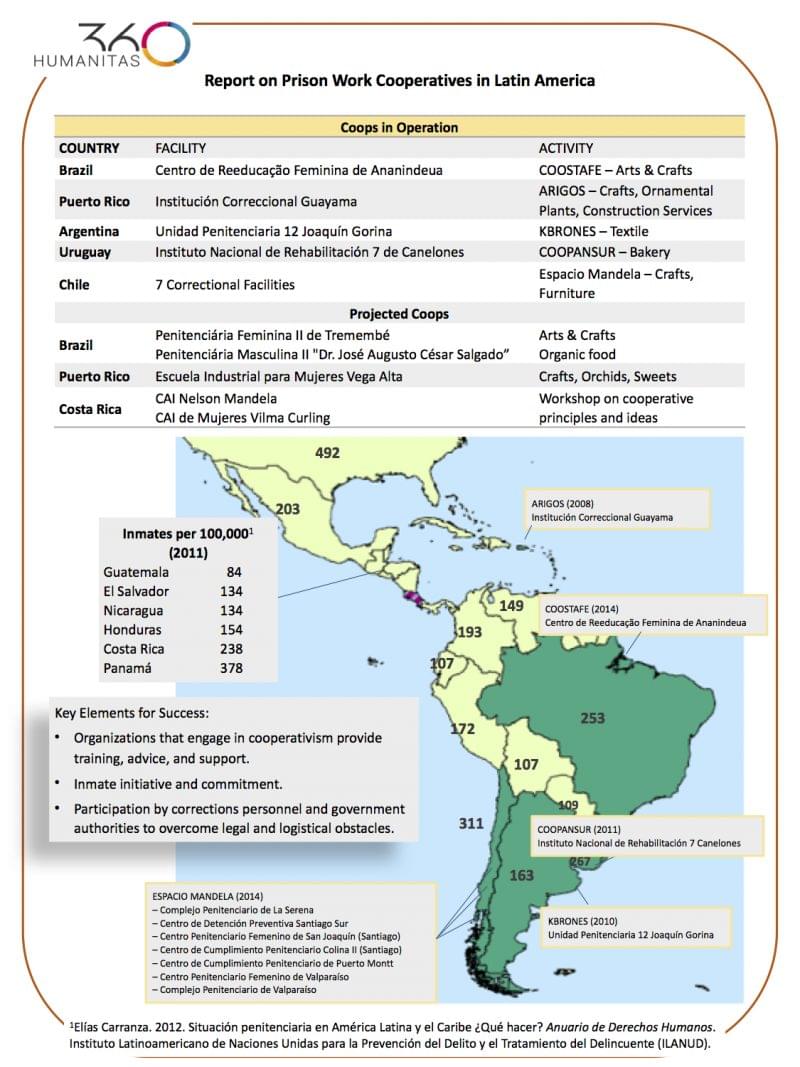Detainee cooperatives begin to emerge as one of the most promising measures to counter growing violence on the streets of Latin America. They aim to use entrepreneurship as an antidote to the influence of criminal factions over who gets out of prison. A survey conducted by the Humanitas360, together with Argentinian researcher Sylvia Gaylord, reveals that by June 2018 five cooperatives were already operating in Brazil, Puerto Rico, Argentina, Uruguay and Chile. Now, two new co-ops are being created in Brazil and Costa Rica.
Finding work after being released from prison is practically impossible as companies resisted hiring ex-offenders. In 70% of the cases, they end up returning to crime as it remains as their easiest and sometimes only alternative. Cooperatives created in prisons, which provide continuing support to ex-detainees, may break this cycle. For instance, the first co-op created in Brazil has received 209 detainees in three years, and none of them have gone back to prison.
Among the activities developed in the projects are: embroidery, sewing and crochet for the production of handicrafts as well as the cultivation of food, plants and woodwork. In Brazil, the only two ongoing projects are supported by H360: the COOSTAFE arts cooperative for women, in the Ananindeua Women’s Penitentiary of Belém do Pará, and the arts cooperative for women of Tremembé Women’s Penitentiary 2, in the state of São Paulo.
H360’s next initiative will focus on male prisoners of the Men’s Penitentiary 2 of Tremembé, which plans to expand the prison garden that currently feeds the inmates. As a result of the project, the food produced within the garden should be enough to feed the region’s 11 prisons with fresh and conserved vegetables.
The picture shows a complete map of the detainee cooperatives in several countries in the Americas.





